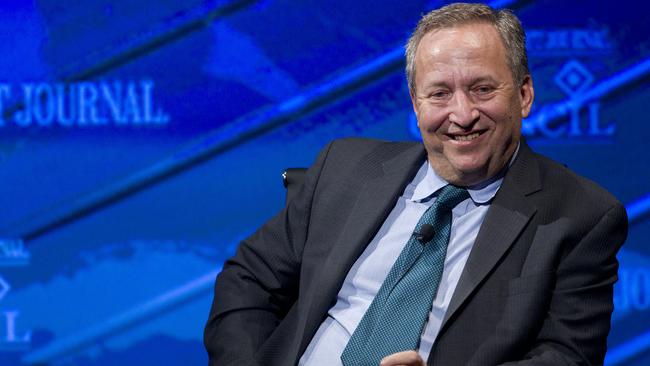Note to central bankers: help is on the way
The winner: John Maynard Keynes, advocate of public spending to boost growth. The loser: Angela Merkel.

The winner: John Maynard Keynes, the advocate of government spending to boost growth.
The loser: Angela Merkel, the austere fighter for balanced budgets.
Host of the loose fiscal policy celebration at Harvard: Larry Summers.
Chief mourner at the austerity funeral: Jens Weidmann, president of Germany’s central bank.
Summers — one of Bill Clinton’s Treasury secretaries and a key economic adviser to President Barack Obama — has long argued that the secular stagnation theory, developed by Keynes acolyte and Harvard professor Alvin Hansen in the 1930s, “offers the most comprehensive account of the situation and the best basis for policy prescriptions”.
It goes something like this: inadequate demand for goods and services discourages business from investing enough to produce robust growth. Only “an expansionary fiscal policy by the US government can help overcome the secular stagnation problem and get growth back on track”, says Summers. In short, despite some $US20 trillion of debt and a rising deficit, the government should loosen its purse strings to increase the economy’s feeble growth rate.
This theory is taking on new life as data seem to confirm the hypothesis. Only 38 per cent of the CEOs of America’s largest companies expect to raise sluggish business spending in the next six months. Why should they, when retail sales fell in August, with the auto sector showing weakness, and the factory sector stagnating?
The next step down the road to looser fiscal policy — broadly, more government borrowing and spending — came from the central bankers’ symposium in Jackson Hole, Wyoming, a few weeks ago. A long period of low interest rates has not produced a flood of investment in factories and facilities by businessmen, who prefer to use their money to buy existing assets, purchases that do not contribute to growth. Please, sirs, can we have some help, asked these supposedly all-powerful bankers.
Next to call for more expansionary fiscal policy were the leaders of the industrialised nations at their annual summit in Hangzhou, China. In their communiqué, the G20 leaders announced that they were “determined ... to usher in a new era of global growth ... catalyse new drivers of growth ... unleash mid- to long-term growth potential ... identify new growth engines”. Translation: we will step up government spending.
There might be some room for the private sector, but Summers points out that with the return on public sector investment so high (20 per cent) and borrowing costs so low, government will be the main source of funds to repair run-down infrastructure.
Candidates for office do not need much urging to spend taxpayers’ money. If elected, Hillary Clinton will launch a five-year, $US275 billion infrastructure spending program, including $US25bn to create a national infrastructure bank. It would guarantee loans to state and local governments and the private sector, bringing total spending to $US500bn. Donald Trump’s infrastructure plan would cost $US800bn to $US1 trillion, the low end of the $US1 trillion-$US2 trillion that Summers thinks is needed.
There’s more. Clinton is proposing entitlement programs including aid to college students and expanded healthcare, paid for by raising taxes on the wealthiest 1 per cent. Trump is having no part in tax increases, promising $US4.4 trillion in tax cuts, with business rates coming down from 35 per cent to 15 per cent. And spending is to go up: spurred on by his daughter, Ivanka, Trump proposes to revise the tax code to help families cope with the high cost of childcare, and to introduce a generous maternity leave program.
Trump’s advisers agree with Summers that faster growth will return to the Treasury some of the funds lost to tax cuts. The rest will come from reducing regulation and, the usual fudge, reducing waste. Trump has done what his critics have been contending he could not do: his latest plan is, shall we say, evolving towards coherence. But it is a thumb-in-the-eye to establishment Republicans, for whom deficit reduction and smaller government are the holy grails of politics.
But Trump would have to run the gauntlet of the deficit hawks gathered around House Speaker Paul Ryan. Believers in the old Republican religion of smaller government, they lie in wait for the new president, confident that when he, or Clinton, send their plans for review, they have the power to pronounce them DOA.
But the times are with the spenders. For one thing, Americans can see crumbling bridges and airports and they know infrastructure spending is required. They also see that our current slow growth is not fast enough to enable their children to live better than their parents are living, a key part of the American dream.
All of this adds up to a demand for a Keynesian-style looser fiscal policy, for opening the sluice gates that were closed when the bipartisan sequester dammed up spending. Central bankers: help is on the way.
The Sunday Times





To join the conversation, please log in. Don't have an account? Register
Join the conversation, you are commenting as Logout